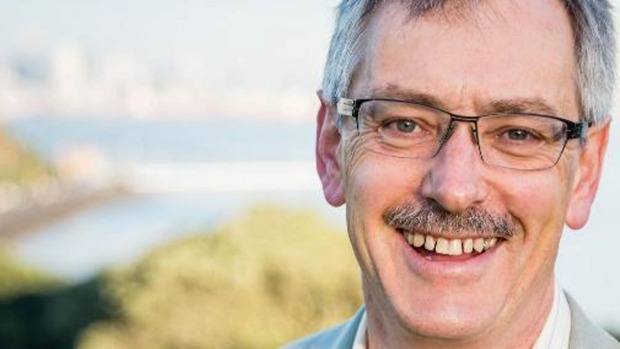Rod Oram’s new book covers a lot of ground, both physically and metaphorically. The title is pretty self-explanatory; he travels to Three Cities with the goal of Seeking Hope in the Anthropocene. The three cities in question are Beijing, London and Chicago, and the anthropocene is the age where humans have had an impact on the planet; an impact rivaling the comet that finished off the dinosaurs.
His journey is rich and fascinating, and the book is as close as you can get to packing yourself in Rod’s suitcase and going travelling with him. Everywhere he went he asked how will we support a population of 9-10 billion people without stuffing the environment? Much like Rod himself, I finished the journey with a pretty grim view of the task ahead, tinged with rays of hope. But most of all I was left with the impression that New Zealand was slipping behind the rest of the world.
Beijing
Oram’s first stop was Beijing. It was striking how similar the issues facing China were to the developed world, yet the way the country deals with those issues couldn’t be more different. Despite incredible savings rates, China’s business sector is steeped in debt, and has huge unused capacity. There is a similar environmental debt, with toxic soil and smog that is the equivalent of a pack-a-day smoking habit.
Yet China is tackling these environmental problems with the same fervor it tackled development. The speed with which China has embraced dense and increasingly sustainable urbanisation puts Auckland’s Unitary Plan into stark relief. Likewise their lurch into the use of electric vehicles is impressive – in 2008 they bought 21 million e-bikes and e-scooters – although the driver seems to be more to improve air quality rather than combat climate change. Much like China’s economic miracle, you are left wondering if they can engineer an environmental miracle, or whether the edifice of central planning will crumble.
Oram finishes by musing on the Chinese success of New Zealand companies Comvita, Fonterra and milk formula generally. His main point is that if we are to achieve our own environmental goals we need to export value, not volume. He suggests that Chinese investment in milk formula factories here in New Zealand is a step in the wrong direction for our industry.
London
London has been at the leading edge of the world’s economy since the Industrial Revolution, and it continues to be a hotbed for new economic and environmental thinking. Key figures in its academia, civil society and media are calling for changes in how we run society, given that the current model is not working for the environment, the people or even the financial markets. Again, New Zealand has a lot to learn from this thinking.
Oram’s short visit to London crammed in a lot of ideas, and there isn’t a lot of time and space to explore which ones might work. A concept that resonates is the Doughnut Economy – that we need to operate within environmental limits (the outer ring of the doughnut) – while providing a minimum standard of living for all (the inner ring). Less alluring are the ideas of Tim Jackson who proposes Prosperity without Growth. While we certainly need to recognise the limits of the planet’s resources, not all growth requires using more resources. It is not clear how Jackson prescribes prosperity for a larger population without growing the world’s income. Why would we want to stop innovation and development entirely, rather than ensuring it truly benefits us and the planet? We will need all our ingenuity to achieve our goals, and having the right incentives is an important part of achieving that.
Chicago
Oram’s journey ends reminiscing how the environmental movement briefly united America into action the 1970s, leading to the creation of the Environmental Protection Agency. He ponders how that momentum might be recaptured. The role of business in facing the world’s problems is crucial, but generally the large incumbent corporates like Volkswagen have been pushing the other way. However disruptive new companies like the New Zealand startup (now Chicago based) Lanzatech provide some hope for overturning the status quo. Again, the reader is left with the nagging question whether we could have done more to keep the company here, or whether New Zealand should instead embrace its role as an incubator for new ideas.
In short, there is much to do, and New Zealand’s Government, business and public are only starting to scratch the surface of the task ahead. The book can be best summed up by this quote from Gus Speth:
I used to think that the top environmental problems were biodiversity loss, ecosystem collapse and climate change… But I was wrong. The top environmental problems are selfishness, greed and apathy.

